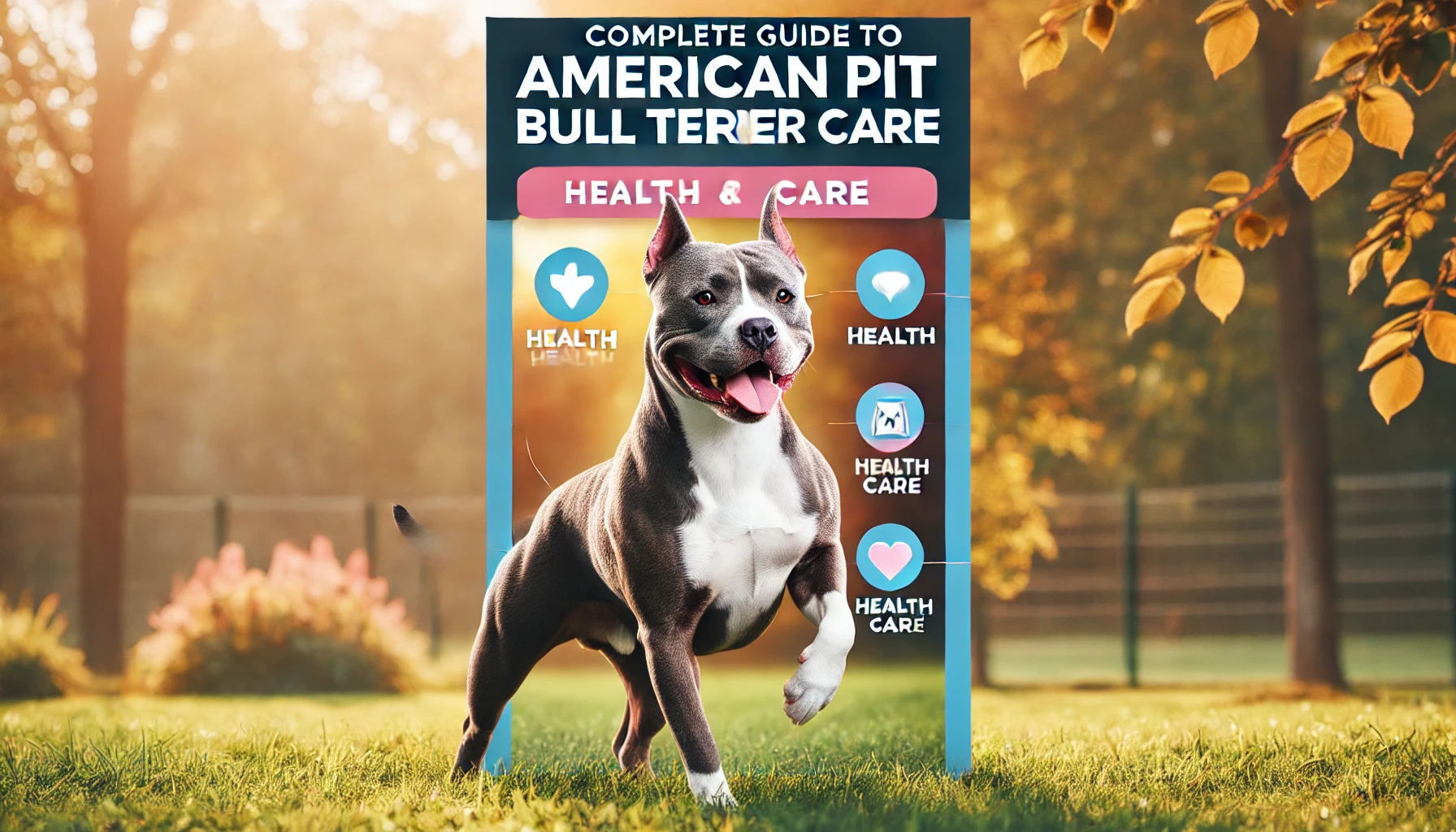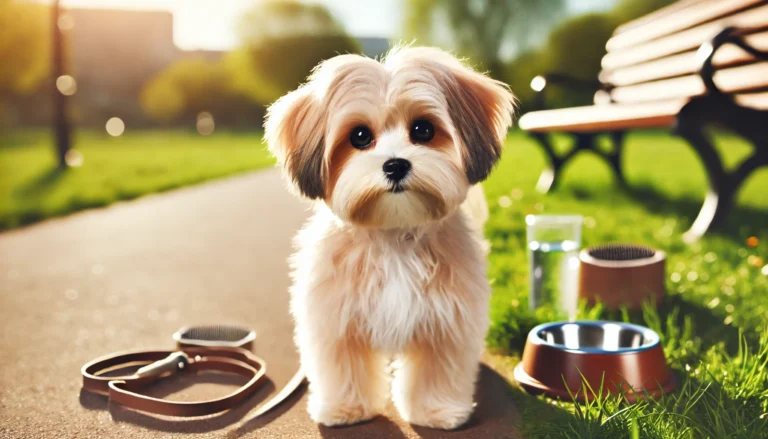American Pit Bull Terrier: Comprehensive Health and Care Guide

Introduction of American Pit Bull Terrier
The American Pit Bull Terrier, often referred to simply as a Pit Bull, is a breed known for its strength, loyalty, and spirited disposition. Despite facing many controversies, the breed retains a loyal following and requires informed, dedicated care to thrive. This extensive guide covers everything from the breed’s characteristics and common health issues to effective care practices.

Breed Overview of American Pit Bull Terrier
The American Pit Bull Terrier, originally bred for bull-baiting and later as a farm dog, is today admired for its companionship and versatility. Known for their muscular build and determined nature, Pit Bulls require committed ownership to manage their physical and mental needs effectively.
Physical Characteristics of American Pit Bull Terrier
- Size and Weight: Pit Bulls are medium-sized dogs with a robust and muscular build. Males typically weigh between 35 to 60 pounds, while females are slightly smaller.
- Coat and Colors: They possess a short, stiff coat that comes in various colors including black, blue, brindle, and white.
Temperament and Behavior
- Personality: Known for their confidence and friendly nature, Pit Bulls are eager to please their owners and are excellent with children if socialized early.
- Energy Levels: They are high-energy dogs requiring plenty of exercises to prevent boredom and destructive behavior.
Common Health Issues in American Pit Bull Terrier
- Hip Dysplasia: A genetic condition that can lead to arthritis and mobility issues.
- Allergies: Pit Bulls can suffer from a range of allergies, affecting their skin and overall health.
- Heart Diseases: Including congenital heart defects which may go unnoticed without regular veterinary screenings.
- Neurological Disorders: Such as cerebellar abiotrophy, though less common, can impact Pit Bulls.
Preventive Care
- Regular Vet Visits: Essential for early detection of potential health issues.
- Vaccinations and Parasite Control: Up-to-date vaccinations and regular parasite control help maintain their health.
- Diet and Nutrition: High-quality, protein-rich dog food tailored to their exercise level supports their muscular build and energy needs.
Training and Socialization
- Early Socialization: Exposing them to various people, pets, and environments can foster a well-rounded temperament.
- Obedience Training: Essential for managing their strong will and ensuring they are well-behaved both at home and in public.
Exercise Needs
- Physical Activity: Daily exercise, including long walks and play sessions, is vital to keep them physically and mentally stimulated.
- Interactive Toys: Can help manage their energy levels and stimulate their minds.
Grooming and Care
- Coat Care: Regular brushing helps manage shedding and keeps their coat healthy.
- Bathing: Monthly baths are sufficient unless they get particularly dirty.
Living With a Pit Bull
- Family Life: When properly trained and socialized, they can be affectionate family pets.
- Housing Considerations: They need space to play and exercise but can adapt to living in apartments if their exercise needs are met.
Legal and Social Considerations
- Breed-Specific Legislation: Owners should be aware of local laws as Pit Bulls are sometimes targeted by breed-specific legislation.
- Public Perception: Efforts to educate the public on the realities of Pit Bull behavior and temperament are crucial to improving their image and acceptance.
Do you know?
The Doberman Pinscher is a highly popular dog breed known for its sleek appearance, intelligence, and loyalty.
Conclusion
Caring for an American Pit Bull Terrier demands commitment but offers immense rewards. Owners must prioritize proper training, socialization, and healthcare to ensure these dogs lead healthy, balanced lives. Understanding and respecting the breed’s needs can help mitigate potential issues and highlight the positive aspects of these devoted companions.
What is the temperament of the APBT breed standard?
The APBT is known for its confidence, enthusiasm to please, and courage.
Is a pit terrier the same as a pitbull?
Yes, “pit terrier” is often used informally to refer to the American Pit Bull Terrier.
Are American pitbull terriers temperament friendly?
Yes, they are known for their friendliness and strong desire to please their owners.
Can I own a pitbull in the UK?
No, owning a Pit Bull Terrier is illegal in the UK under the Dangerous Dogs Act of 1991.
Is it safe to own a Pit Bull?
Yes, with proper training, socialization, and responsible ownership, Pit Bulls can be safe and loyal pets.
Are Pit Bulls allowed in Germany?
It varies by state, but some German states have restrictions or bans on owning Pit Bulls.
Why is pitbull banned in 12 countries?
Pit Bulls are banned in some countries due to perceptions of aggression and public safety concerns.
Does Italy allow Pit Bulls?
Yes, but owners must register them and adhere to specific regulations, including using a leash and muzzle.
Why are Pit Bulls not banned?
In countries where they are not banned, it is because legislation is based on behavior rather than breed, emphasizing responsible ownership.
Why are pitbulls banned in UAE?
The UAE bans Pit Bulls and other breeds considered aggressive to protect public safety.






